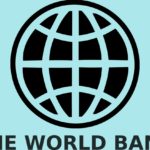Islamabad, September 23, 2025 – The World Bank has sounded the alarm over Pakistan’s worsening economic challenges, highlighting a troubling reversal in the country’s fight against poverty.
According to its latest report, Pakistan’s Poverty, Equity, and Resilience Assessment, years of hard-fought progress are now at risk as compounding crises undermine earlier gains.
The report notes that Pakistan successfully reduced poverty from 64.3 percent in 2001 to 21.9 percent by 2018. Much of this decline was driven by off-farm informal employment, rising non-farm labor incomes, and remittances. However, the pace slowed after 2015, and in the aftermath of multiple crises—including the COVID-19 pandemic, devastating floods, record inflation, and ongoing economic instability—poverty rates are climbing again. The World Bank estimates that 25.3 percent of Pakistan’s population now lives below the poverty line.
The current economic model, once effective in creating off-farm opportunities, is no longer sufficient. Real wage growth in low-income sectors has stagnated, leaving millions unable to convert economic growth into higher household incomes. Vulnerability remains widespread, with nearly 14 percent of the population at risk of sliding back into poverty when faced with shocks.
The report also identifies deep-rooted structural weaknesses. Access to education, healthcare, clean drinking water, and sanitation lags significantly behind other countries in the region. For instance, nearly 40 percent of children suffer from stunting, while one-quarter of school-aged children remain out of school. Even among those who attend, learning outcomes remain weak, with most unable to read a simple story by the end of primary school.
Geographic disparities further complicate the picture. Rural areas remain more than twice as poor as urban centers, while provinces such as Balochistan record poverty rates exceeding 40 percent. In addition, rapid urbanization has failed to deliver anticipated productivity gains due to weak infrastructure and poor planning.
To reverse the trend, the World Bank recommends bold reforms across four key pathways: investing in human capital, building resilience through stronger social safety nets, introducing progressive fiscal policies, and strengthening data systems for better policy design. While initiatives such as the Benazir Income Support Programme (BISP) and the National Poverty Graduation Programme have cushioned vulnerable households, they are no substitute for broader structural reforms.
The report emphasizes that tackling inequality, improving local governance, and ensuring fiscal stability are vital for restoring growth. It calls for a stronger social contract between the state and citizens, improved public service delivery, and transparency through digitization. The Bank also stresses that addressing climate risks and preparing for future shocks is essential to prevent millions more from falling into poverty.
In conclusion, the World Bank warns that without urgent and comprehensive reforms, Pakistan risks locking itself into a cycle of vulnerability and missed opportunities. With coordinated action and long-term planning, however, the country can still chart a pathway toward resilience, equity, and sustainable prosperity.
